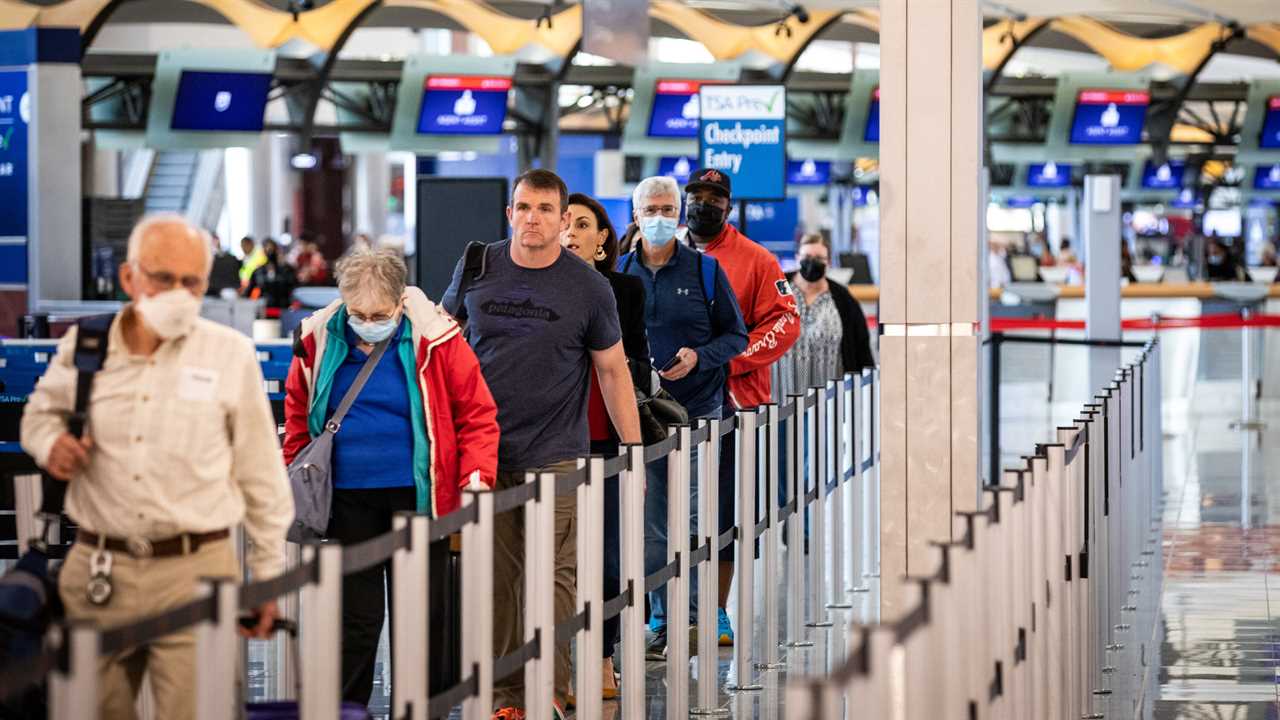
WASHINGTON — President Biden said on Tuesday that Americans should decide for themselves whether to wear masks, undercutting efforts by his administration to urge Americans to keep wearing face coverings on airplanes, trains and buses even after a federal judge struck down a nationwide mask mandate on public transport.
The decision to wear a mask is “up to them,” Mr. Biden told reporters during a trip to New Hampshire to promote infrastructure spending.
The Biden administration has not ruled out an appeal of the ruling, but it could take several days for the Department of Justice to decide whether or not to challenge the ruling.
The patchwork of messaging contributed to confusion less than 24 hours after the ruling was handed down. The president, caught somewhere between politics and science, left it up to Americans to make their own choices. His press secretary urged Americans to follow existing health guidance, because that is what the president would be doing. And Dr. Ashish K. Jha, the administration’s coronavirus response coordinator, said on Twitter that he was disappointed in the ruling and that he, for one, would still wear masks on planes.
A wave of federal agencies, city transit authorities and private companies said that they would no longer require travelers to wear masks after a federal judge appointed by former President Donald J. Trump voided a mandate on Monday that had been in place since February of last year. Just days earlier, the Centers for Disease Control and Prevention had extended the mandate through May 3 to assess the state of the pandemic.
The ruling took officials inside the White House by surprise and frustrated them, two senior officials said. But on Tuesday, as travelers aboard airplanes took directions from pilots to unmask and riders aboard transit systems, including in Washington, went mask-free, the Biden administration did not lay out a detailed plan to contest the ruling, even as public health experts warned that the C.D.C.’s authority to prevent the spread of a contagious virus was on the line.
On Tuesday, Jen Psaki, the White House press secretary, said the decision to remove the masking decision should have been up to the C.D.C., not the courts.
“Public health decisions shouldn’t be made by the courts, they should be made by public health experts,” Ms. Psaki told reporters on board Air Force One, on the way to New Hampshire. “We obviously feel confident in our authorities here given that we put the mask mandate in place and asked for 15 additional days to evaluate data based on public health information.”
But the administration’s confidence in its ability to enforce masking requirements conflicted with the broader reality that many masking regulations seemed to dissolve within hours of the ruling. (Some, including in New York City, are staying in place.) The Transportation Safety Authority said on Monday that it would stop enforcing the C.D.C. mandate. Several airlines, including Delta and United, told travelers that masks would not be required; some travelers learned the news mid-flight.
Some White House officials said they would try to combat an inaccurate assessment of the threat the virus poses to the public. After Delta told its passengers that the virus had “transitioned to an ordinary seasonal virus,” Kevin Munoz, a White House spokesman, tweeted that the virus was still a threat.
Beyond piecemeal responses, Mr. Biden’s advisers have been trying to triage the effects of the ruling, agency by agency, to figure out what the response should be, one official said.
Dr. Julie Morita, the executive vice president of the Robert Wood Johnson Foundation who served on Mr. Biden’s coronavirus advisory committee during his presidential transition, said that she hoped that the Biden administration would appeal the ruling.
“It really is undermining of the C.D.C.’s public health authority to make requirements that really helps prevent disease transmission between states and internationally,” Dr. Morita said in an interview. The agency, she said, needs to “have the authority to implement these protective measures.”






